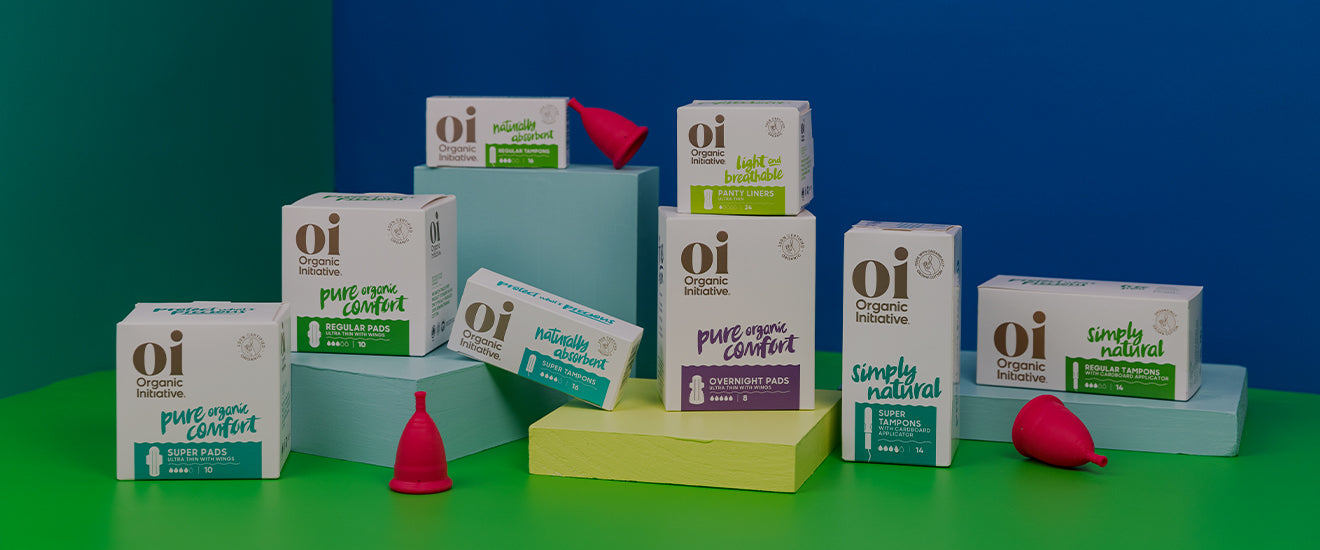Think your menstrual cycle is 'abnormal' or worried the tampon you inserted earlier might be lost forever? We get it. There's a lot of confusion (and plenty of unhelpful taboos) surrounding periods – so we’ve created this article with the help of a gynaecologist to separate the facts from fiction.
Addressing your unspoken questions and concerns, we shed expert light on the mysteries surrounding periods and dispel the most common period myths. From the notion of periods syncing among friends to the ‘danger’ of having sex during your cycle, we drop some much-needed truth bombs.
So, if you're ready to rethink what you thought you knew about menstruation and empower yourself with the facts, read on.
Periods sync up
“Periods syncing up between friends, co-workers or housemates have been reported for years. And poorly conducted research in the past insisted this was the case,” says Brisbane-based Fertility Specialist and Gynaecologist, Dr Devini Ameratunga.
It was believed that pheromones may play a role in this. However, much subsequent research has failed to prove the phenomenon. “Whilst there may be some effect on humans, there is no evidence that this will synchronise menstrual cycles,” says Dr Ameratunga.
It's dangerous to have sex on your period
Not true, says our expert. Having sex when you’re menstruating is perfectly fine – but it will depend on the level of comfort for you and your partner. While sex may help to relieve cramps, be aware that it can be painful if you usually have painful periods.
If mess is a concern, options include having sex in the shower. Or wait until your period is over if you prefer – your body, your decision.
You can lose a tampon inside you
Good news – a tampon is never truly ‘lost’. It can’t get lost in the abdomen as the cervix (located at the end of the vagina) only has a tiny opening to allow blood or semen through. However, it can move and become wedged quite deeply in the vagina or be difficult to find. And you may accidentally insert a second tampon before removing the first.
“You can forget you have a tampon in. Sometimes the string can get move up into the vagina – hence there’s less chance you remember you have one in,” says Dr Ameratunga. “It is very important to remove tampons as if left for too long can lead to serious infections which can have repercussions (e.g. toxic shock syndrome).”
If you do find yourself with a stuck tampon, don’t panic. This article provides a step-by-step guide to removing it.
You can’t get pregnant on your period
If you think you can skip the contraception while you’re bleeding, you might want to consider a backup. “Although some people use their period as a natural timing to avoid pregnancy, we know this is not accurate and can lead to pregnancies,” says Dr Ameratunga.
“This is because sperm can survive for up to five days or so in the uterine tract but also because bleeding or spotting may not be an accurate indicator of the actual physiological changes occurring in the body. For example, some women have spotting for a lot longer after their main bleeding, or bleeding in between periods.”
The main takeaway here? Contraception is always advisable if you want to avoid a surprise pregnancy.
A normal cycle is 28 days
While some women will bleed every 28 days, like clockwork, there’s usually no need to worry if your cycle is longer, shorter or hard to predict. “’Normal’ can be quite variable depending on what point of the reproductive stage you’re in,” says Dr Ameratunga.
Regular periods are generally considered to be between 25-35 days. However, periods are often more irregular when you start menstruating or are getting closer to menopause.
You can’t swim on your period
It’s time to bust this common myth. Period. There is no reason not to swim (or take part in other sports) during your period. But you do need to use an appropriate menstrual care product when you hit the pool or ocean.
While being in water can temporarily stop your period from flowing as freely, you will still be releasing blood. So it’s important to wear protection – especially in a swimming pool.
Tampons, period swimmers and menstrual cups are all comfortable and hygienic options. But it’s best to skip the pads and panty liners are these don’t hold up well in water.
Using a tampon will mean you’re no longer a virgin
Let’s dispel this menstruation myth once and for all. Breaking the hymen outside of intercourse, whether by using a tampon or otherwise, does not equate to loss of virginity.
“The hymen is a bit of tissue that some people will have left over from our embryological origins when the female organs and external genitalia were formed,” says Dr Ameratunga.
“Theoretically, anything can break the hymen with penetration, including a tampon. Although this would usually be too small.”
You have to put up with severe pain
Menstruation pain is complex and has many factors that may contribute to it. But nobody should tolerate severe pain without making sure there is no serious or fixable cause. According to our doctor, once underlying causes are excluded (or treated), there are many ways to manage pain from medical to surgical to non-medical treatments.
If you have significant period pain or pain that interferes with your daily living, make an appointment with your GP or Specialist.
A final word
Periods are normal, natural and nothing to be ashamed about. If you have any questions or concerns, don’t be afraid to ask your doctor. There is truly NOTHING they haven’t seen or heard before and the more we talk about our experiences, the closer we come to eradicating the shame and secrecy that has often shrouded menstruation.
Dr. Devini Ameratunga - https://carefertility.com.au/why-care-fertility/meet-the-team?view=article&id=211:dr-devini-ameratunga&catid=12:doctors

No Greenwashing.
Period.



